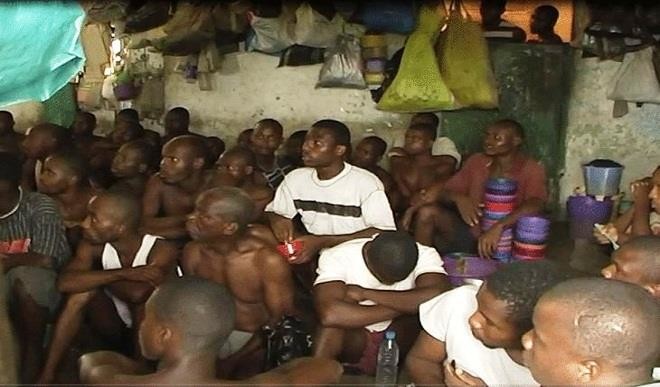Beyond prison, inmates deserve to hope
When you are locked away in the slammer, it helps to keep hope alive of one day reforming and getting reintegrated back into society. But that’s not been the case for many inmates behind bars in Nigeria’s prisons, many of them aged under 50. “When I came into prison, the first thing I observed was […]


When you are locked away in the slammer, it helps to keep hope alive of one day reforming and getting reintegrated back into society.
But that’s not been the case for many inmates behind bars in Nigeria’s prisons, many of them aged under 50.
“When I came into prison, the first thing I observed was that 94 percent of inmates are young people between the ages 18 to 50 years,” said an inmate at Kuje Prisons, simply named as Chukwudi.
“This is the stage in any person’s life when you make impact in your generation but crime has denied them that.
“I also discovered that Kuje prison was built to keep 500 inmates but was congested with over 900 inmates, who are compressed like sardine fish during the night hours to make sure that everybody sleeps.”
He is part of a growing Church- and civil-society-led movement to reform prisons in the country—but most importantly the inmates themselves.
The Rev Victor Nyoroh, a lawyer and founder of EarthSpring, a charity working on prison reform, is backing an action plan for “meaningful reintegration.”
“There should be tracking, documentation and information. People will be able to work on data and arrive at results that are noticeable and practical. A lot is shrouded in secrecy, and there are things we don’t know much about,” said Nyoroh.
Speaking a sensitization workshop in Abuja, he said the platform for reintegration will enable the church, civil society organizations and media know what to do.
“The church is a conscience of society. They are the ones to drive these values into stakeholders. It will be a concrete representation of what the church is to do. It is more of a conscience attitude.”
The action plan includes efforts to “concretely commit to social teachings and social works that need to be done to bring forth creativity and reformation in the lives of the inmates,” he said.
The push is to ensure inmates “no longer become victims of recidivism and are empowered to becoming dignified entrepreneurs,” said Nyoroh.
One positive is that prisons are opening up to stakeholders willing to help within its walls.
“They have opened their doors and windows. They want to collaborate and interface with society. Gone are the days when prisons are seen as punishment centre, a gulag centre for slaughter. They have discovered they need the collaboration of society in areas they feel the society can help.”
The needed help involves a congestion of judiciary, more than just the prisons, said Nyoroh.
“It is a bandwagon. Proper representation, adjournment, diligent prosecution, lethargy and indifference of lawyers, bail conditions. It needs reform. Political cases are accelerated but pickpockets are forgotten,” he said.
“It is a signature of society, if society is well organised the prisons will be well organised. If things work out well in society, there is no how the prisons can be blamed.
“The whole thing about reintegration is not one sided. Prison is simply a place for safe custody of inmates but what happens inside is there must be a turnaround in the lives of people.”
Chukwudi has seen some turnaround. Inmates around him are sitting for certificate exams and attending open-university courses, or learning craft to repair computers and mobile phones—and he doesn’t want to remain the same.
“l yielded myself to crime, born out of greed, lack of contentment and many other vices. This cost me a reasonable part of my youthful age, behind the bars. I was opportune to see young people who have spent 13 years and above in prison,” he recalled.
Now he wants a different life.
